2023. June 16.
The Bolyai Prize, created on the civil society’s initiative and given to individuals who have achieved outstanding results in science even by foreign standards.
At a ceremony held in the Ceremonial Hall of the Hungarian Academy of Sciences, Katalin Novák, President of Hungary, presented the Bolyai Prize to Gábor Stépán, Member of the Hungarian Academy of Sciences and Professor of the Department of Applied Mechanics at the Budapest University of Technology and Economics. The President of the Republic stressed: Gábor Stépán is a living example of how science is driven by curiosity, which stems from childhood. She added that the cradle of science is also the family, since it is the parents’ role not only to satisfy but also to preserve and nurture a child’s curiosity, thus educating the scientists of the future. The Bolyai Prize was awarded to Gábor Stépán on the basis of the award committee’s unanimous decision.
Dr. András Perczel, Professor of Organic Chemistry and Chairman of the Board of Trustees of the Bolyai Prize Foundation, said: “In establishing the Bolyai Prize, our aim was not only to recognise the achievements of those who have done exemplary work for science and progress, but also to make these achievements known to the wider public. Gábor Stépán will undoubtedly be a worthy ambassador of Hungarian science with his national and international work and merits.”
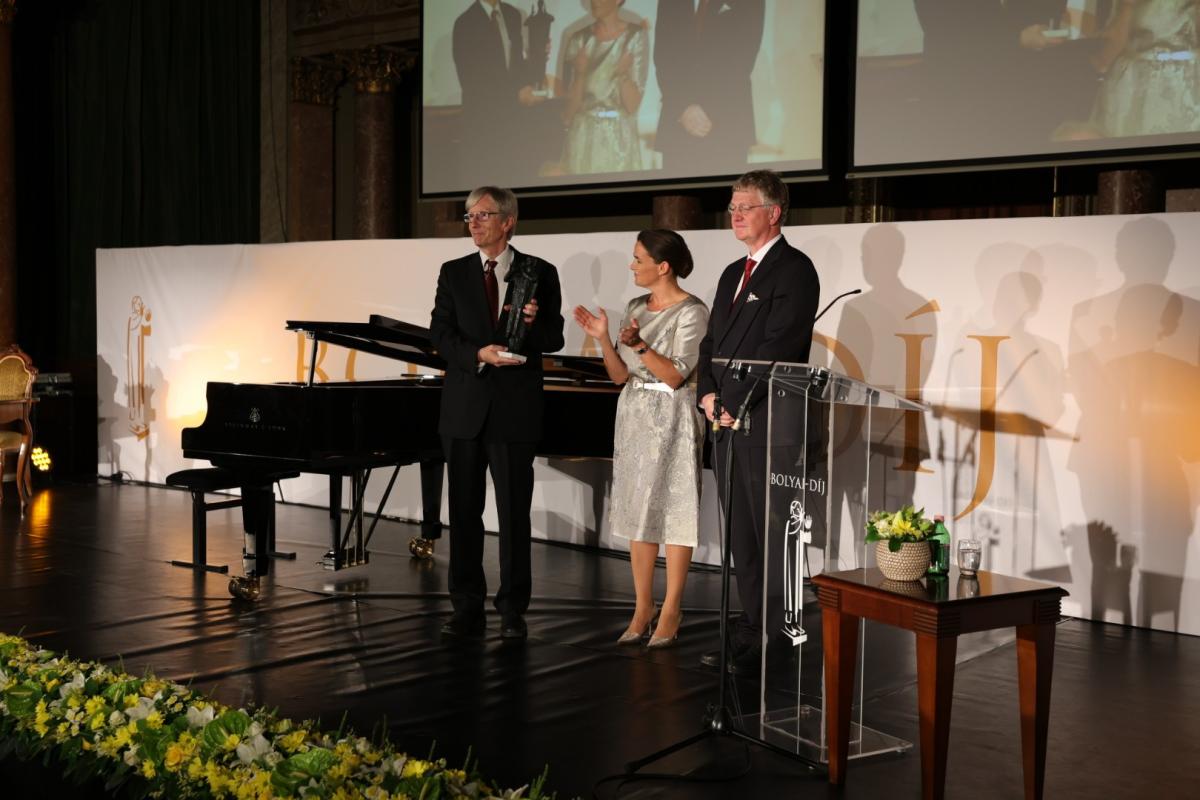
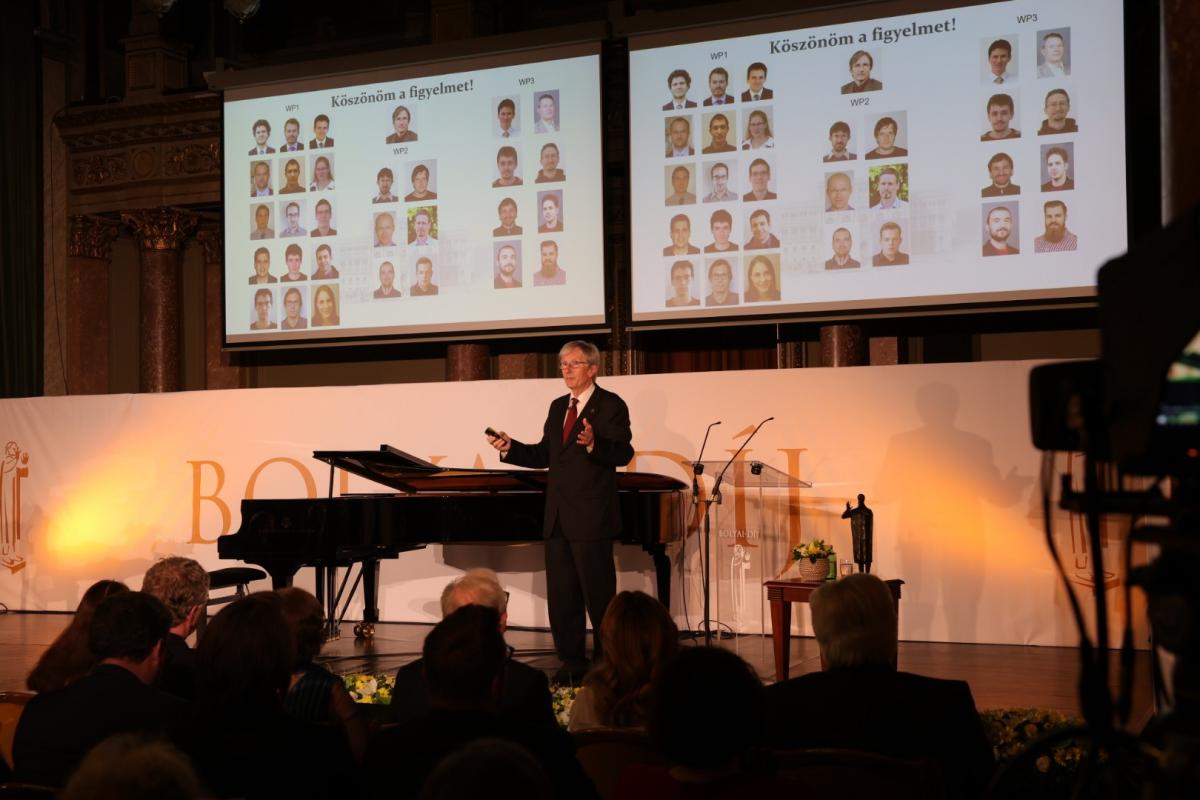
By awarding the Bolyai Prize to Gábor Stépán, the Board of Trustees is recognising, for the first time, a researcher involved in traditional engineering, which could boost the popularity of engineering as a profession.
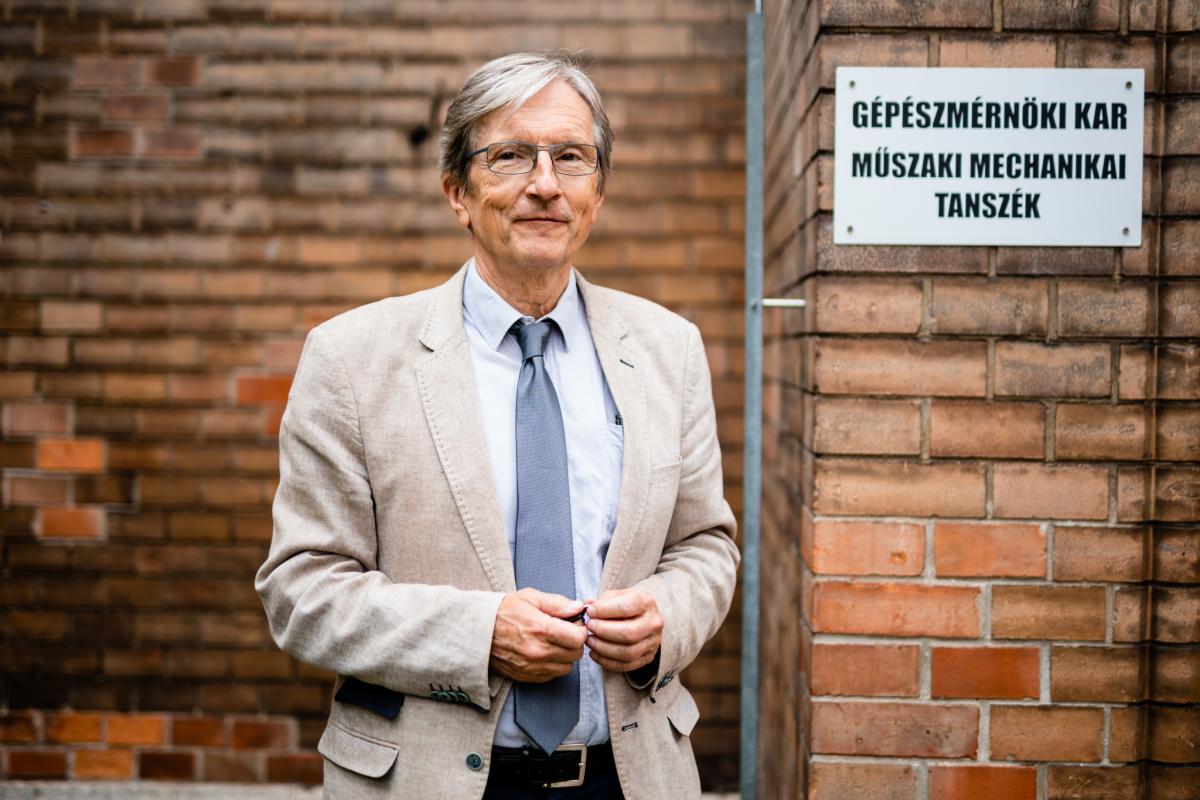
Gábor Stépán is a 69-year-old Széchenyi Prize-winning mechanical engineer and professor at the Budapest University of Technology and Economics (BME). His scientific work started already as an undergraduate, having won several 1st prizes in TDK and OTDK competitions, and in his fourth year he won 3rd prize in an international mathematics competition for university students. He earned his PhD degree in 1982 and a DSc at the Hungarian Academy of Sciences in 1994. In recognition of his scientific achievements, he was elected a Corresponding Member of the Hungarian Academy of Sciences in 2001 and a Full Member in 2007. From 2011-2017, he was the President of the Section of Engineering Sciences at the Hungarian Academy of Sciences. He has been a member of the Academy of Europe since 2013 and a visiting researcher at several foreign universities for various periods, including California Institute of Technology, Newcastle University, Delft University of Technology and University of Bristol. Gábor Stépán's main research area is nonlinear dynamics and time-delay systems, which has many practical engineering applications, for example: the design methods he has developed can be used to make the production of workpieces many times more efficient, drastically reduce the number of machine parts and at the same time speed up production significantly. His work on reducing vibrations from machinery can result in the production of quieter vehicles. Rolling noise (wheel noise) in cars can be reduced using the tyre/ground contact model he developed. He provided an explanation for the so-called phantom jams on motorways that happen for seemingly no apparent reason, and his preventative control methods are now being taken into account in the design of new motorways in many countries. His theoretical and experimental results contribute to the safe and accurate operation of robots used for motion therapy.
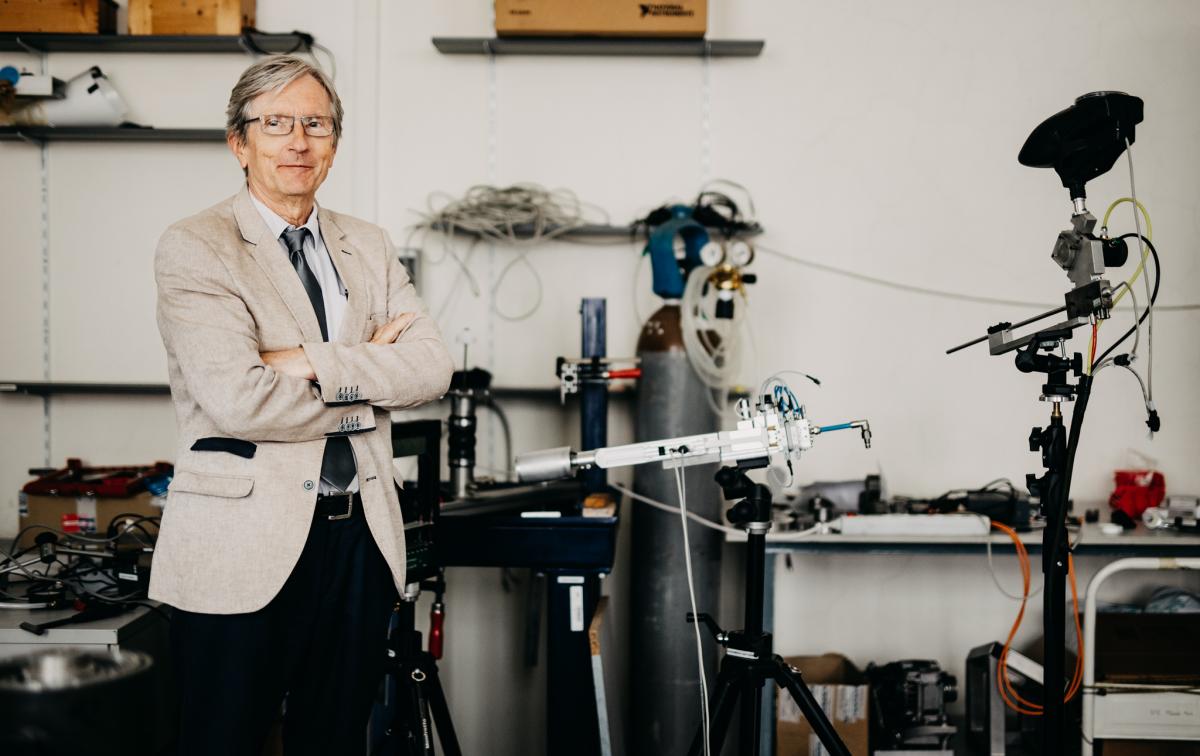
He is the project leader of several national and international grants, the most notable of which is being the first in Eastern Europe (and so far the only one in Hungary) to have won an ERC Advanced Grant in the field of engineering technology, and his success is demonstrated by the fact that he was awarded an ERC Proof of Concept Grant in 2020. The project led to the development of parts for the special design of high-speed cutting edges in machine tools. These tools help to make vehicles and household appliances quieter and reduce their operating noise. Still an active researcher, he is one of the awardees of the Excellence in Research Programme (2020-2025). Gábor Stépán is an academic researcher, who so far has had 17 students granted a PhD degree and he is currently supervising the work of 4 PhD students. His former students include company directors, managers, department heads, 2 holders of the Doctor of the Hungarian Academy of Sciences title, 3 research group leaders in the Momentum programme, one corresponding and one external member of the HAS.
Gábor Stépán is one of the most popular lecturers at BME, and his work in promoting science is outstanding. He often uses demonstration tools in his lectures and always illustrates phenomena in physics through examples that are of current interest to young people. He has appeared in various science programmes in different media outlets, such as M1, M5, DunaTV, Kossuth Radio, Catholic Radio, in various programmes such as: Delta, Mindentudás Egyeteme (University Of Omniscience), Multiverzum (Multiverse), Tér-idő (Space-time), TudásPresszó (Science Café). He has dozens of promotional lectures for secondary school and university students on youtube. He continues to promote careers in engineering and science to secondary school students.
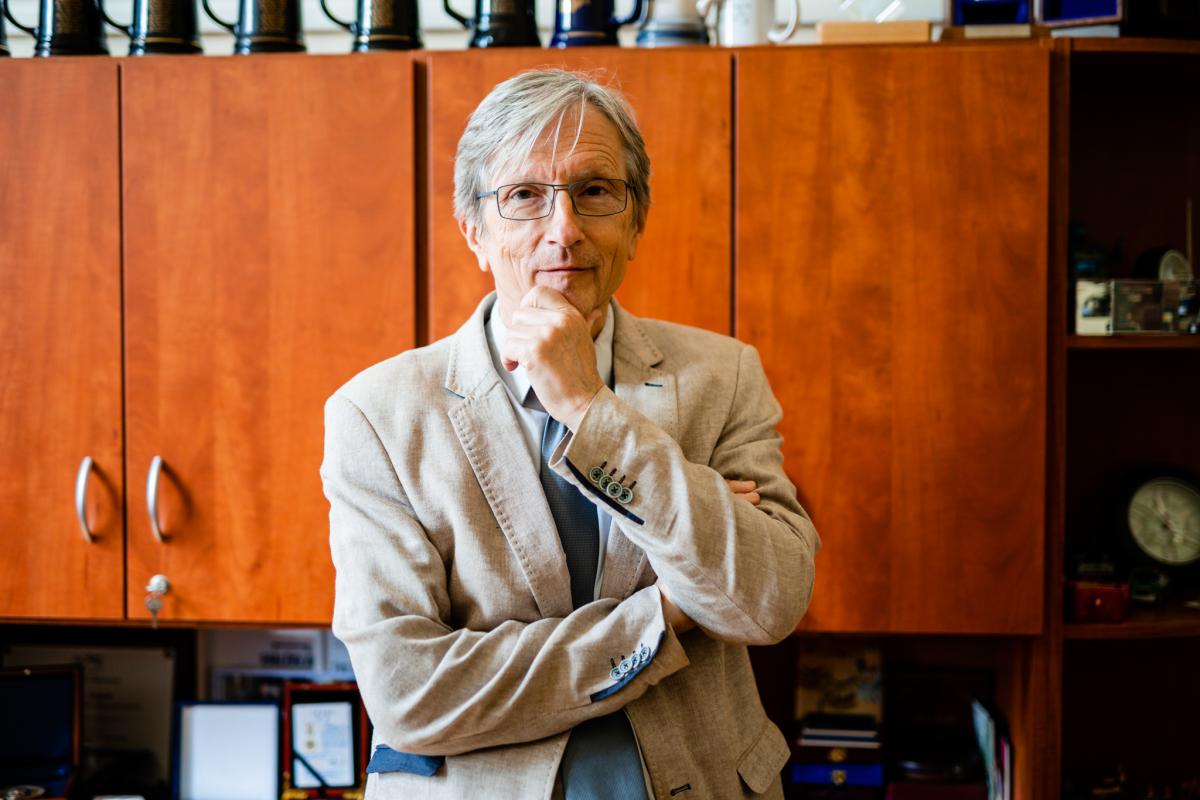
|
Founded in 1998 and awarded every two years, the Bolyai Prize was established with the aim of elevating knowledge and science, thus ensuring the social recognition of scientists. The prize, created on the initiative of civil society and from private capital, can be awarded to persons with Hungarian citizenship or of Hungarian origin who achieve outstanding results also at international level in the field of scientific research, development or the education of future scientists, or whose achievements can be utilised at a socio-economic level. 2000 – Tamás Freund neurobiologist, university professor[1] 2002 – Tamás Roska electrical engineer, IT specialist, university professor[2] 2004 – Zsolt Bor laser physicist, university professor[3] 2007 – László Lovász mathematician, university professor[4][5] 2009 – Zsigmond Ritoók classical-philologist, university professor[6] 2011 – András Perczel chemist, biochemist, university professor[7][8] 2013 – Zoltán Nusser veterinarian, biologist, neurobiologist[9] 2015 – Csaba Pál biologist, senior research fellow of the Biological Research Centre (BRC) of the Hungarian Academy of Sciences[10] 2017 – Katalin É. Kiss linguist, researcher of generative syntax and Hungarian syntax.[11] 2019 – Albert László Barabási physicist, network researcher[12] 2021 – Katalin Karikó research biologist[13] |
Rector’s Cabinet Communications Directorate
Photos: MTI, Geberle B.


